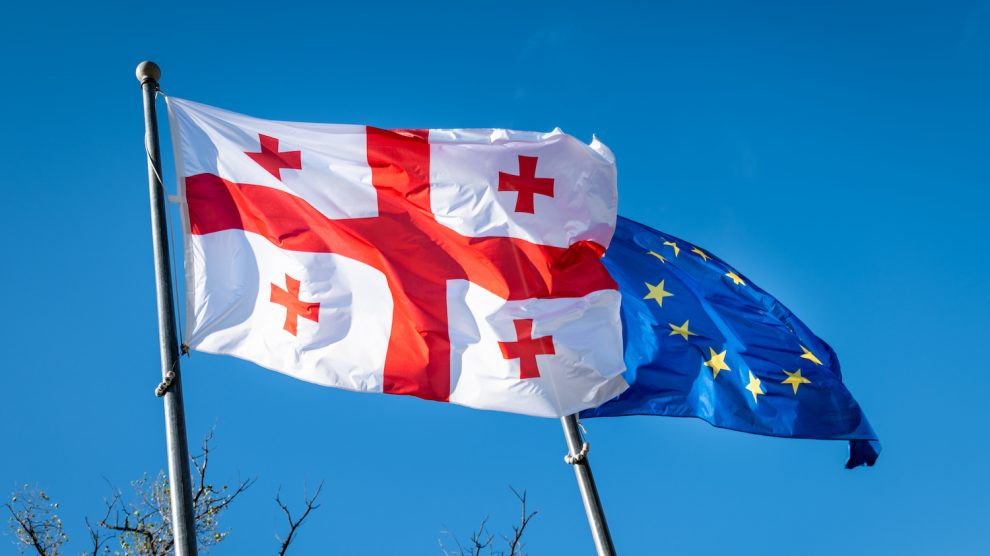Imposing targeted sanctions and supporting civil society are all necessary steps to help Georgia stay on its democratic, European path.
Georgia, once seen as a strong example of democracy in the post-Soviet region, is now slipping toward authoritarianism. The government is cracking down on opposition, weakening the courts, and targeting civil society groups.
These actions threaten not just Georgia’s democracy but also its future with Europe. The EU needs to act now by placing sanctions on officials who are undermining democracy and providing more support to local organisations defending people’s rights. Taking a strong stand is essential to help Georgia stay on the path toward democracy and Europe.
There is no time to waste. On November 28, the ruling party, Georgian Dream, announced a decision which changed everything: suspending EU accession talks until 2028. This decision came after elections in Georgia which were recognised as unfair. The European Parliament had already called for new elections to be held under international supervision. Thousands of Georgians have since been protesting on the streets, waving EU flags and fighting for the country’s European future.
For them, this is not just about politics; it is about protecting democracy and securing a future aligned with European values.
The stakes could hardly be higher. Over 80 per cent of Georgians support joining the EU. Suspension of accession talks is a huge betrayal. It also signals a dangerous shift towards Russia. Protesters have faced tear gas, water cannons, and violence from police. Despite this, they continued to show up, night after night, demanding change. Their message is clear: they do not want an authoritarian future. They want a democratic, European Georgia.
Sanctions alone are not enough
The EU must act decisively, starting with targeted sanctions against those responsible for halting Georgia’s progress toward membership. Personal sanctions on key members of the Georgian government and their family members, particularly those with assets or residences in the EU. Freezing their assets and restricting their ability to travel within Europe would discomfort them and send a strong message: undermining democracy and violating basic human rights has serious consequences.
However, sanctions alone are not enough. The EU must also support Georgian civil society, which is on the front lines of the fight for democracy. Independent media, human rights organisations, and grassroots activists are critical to holding the government accountable and ensuring the voices of ordinary citizens are heard.
These groups require direct financial and logistical support. Bypassing government channels is the best way to ensure aid reaches the most vulnerable. The funding of independent journalism can help counter government propaganda and provide the public with accurate information. At the same time, documenting abuses and promoting democratic reforms can be made easier by supporting human rights groups.
Inaction carries significant risks. By failing to respond decisively, the EU will strengthen authoritarian leaders in Georgia and throughout the region. It will be a direct message to Russia that it may continue undermining democratic movements in its sphere of influence. It will be difficult for the EU to promote its values on a global scale if its credibility as a defender of democracy is weakened.
The EU must seize this pivotal moment. Imposing targeted sanctions and supporting civil society are all necessary steps to help Georgia stay on its democratic path. This is a critical moment, and the EU’s response will have lasting implications. The people of Georgia have made their choice clear: they want to be part of Europe.
Now, it is up to the EU to show that it stands with them—not just in words, but in actions that make a real difference. Only then can we ensure democracy and freedom prevail in Georgia and beyond.
Photo by Roxana Pitis on Unsplash.
At Emerging Europe, we use an integrated approach centred around market intelligence to help organisations understand trends and strategically position themselves for success.
Learn how our solutions can help you thrive in the region:
Company and Services Overview | Strategic Advantage.

